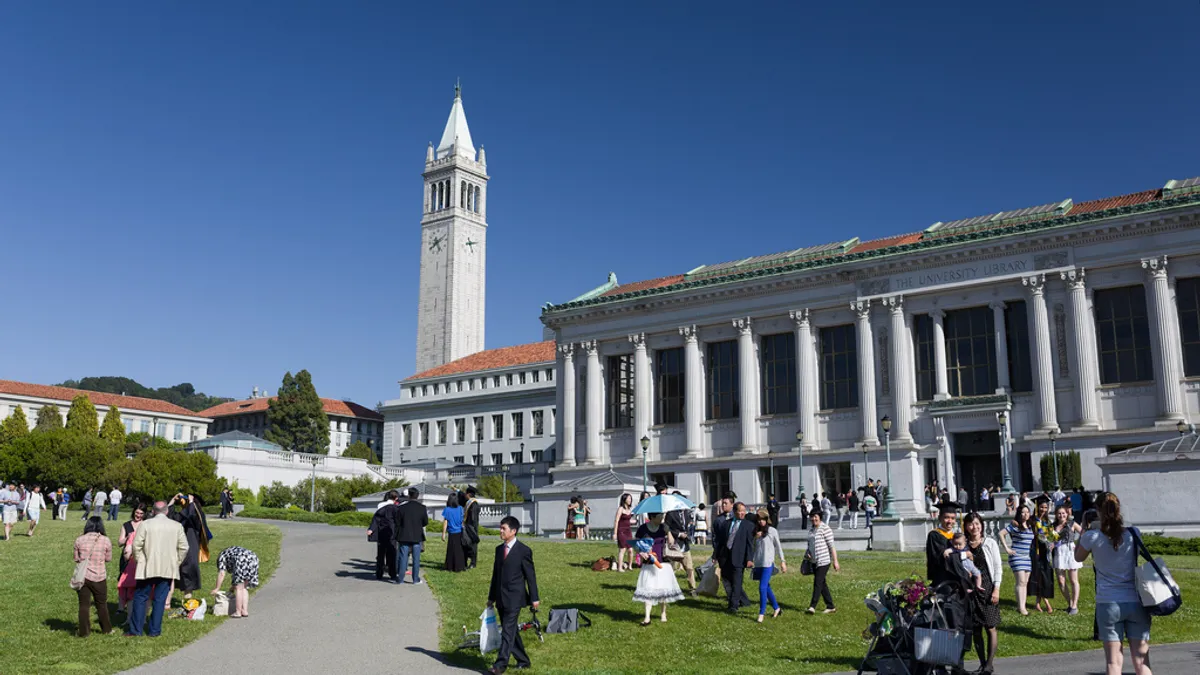Dive Brief:
- The University of California, Berkeley's $126 million plan to replace a parking lot with faculty housing and an academic building is being met with two lawsuits, the San Francisco Chronicle reported.
- The two plaintiffs — the city of Berkeley and advocacy group Save Berkeley's Neighborhoods — contend in separate complaints that enrollment increases are straining the area's public services.
- UC Berkeley has surpassed its predictions for its 2020 enrollment by more than 9,000 students. As a result, the city contends, it should pay more in impact fees. The advocacy group wants to delay the project so an environmental impact assessment can be done.
Dive Insight:
The redevelopment project at the center of both lawsuits aims to increase campus housing and expand UC Berkeley's public policy school. However, they diverge in what action they'd like the university to take.
The city of Berkeley wants the university to pay more in impact fees to offset the pressure on its "already overtaxed public services," it said in the lawsuit.
In 2018, the institution accounted for 37% of the Berkeley fire department's service costs, and 19% of calls to the police department came from within campus grounds. Such services cost the city around $21 million a year, the complaint says, up from $11 million in 2003. The city has asked the university to pay that much in impact fees, a 1,000% increase from what it currently pays, according to Berkeleyside, a local media organization.
UC Berkeley pushed back, in a statement obtained by Berkeleyside, calling the fee "unprecedented not just for Berkeley and every other UC campus … but also for every university in every city in this country." Moreover, the university contends it has reduced its impact on local resources through various conservation methods, Berkeleyside reported.
Meanwhile, the complaint filed by Save Berkeley's Neighborhoods is the latest clash between the group and the university. In a lawsuit last year it argued that the enrollment increases have worsened student homelessness and traffic, and put pressure on local services.
Relationships between universities and their surrounding communities have long been strained. Student housing encroaching into family neighborhoods, colleges' use of public services and campus unrest can all contribute to a tense climate.
Colleges may end up paying the price. Oberlin College, for example, was recently hit with a $44 million defamation judgment after the campus rallied against a bakery that a student accused of racial profiling. And in 2016, Princeton University agreed to pay more than $18 million to settle a lawsuit brought by locals who took issue with the institution's exemption from property taxes.
Some colleges aim to ease town-gown tensions. For example, the University of Maryland, College Park has led an effort to attract startups, restaurants and research firms to the community. And other institutions — such as the University of Utah, Tulane University and Johns Hopkins University — have focused on giving back by adding public service graduation requirements and hiring more locals.











